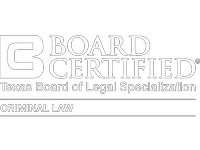
by Chuck Lanehart and Fred Stangl
Mitigation evidence is an effective tool used by good criminal defense lawyers to increase the odds of a satisfactory result in their clients’ cases. “Mitigation” means to “make less severe, serious or painful.” In criminal cases, mitigating circumstances may lessen the gravity of an accusation or reduce a client’s culpability in a crime.
Positive information such as close family ties, involvement in kid’s activities, taking care of aging parents, military service, church attendance and volunteer activities, doing anything that helps someone or has a positive impact on the community: all such information can make a big difference in the outcome of a criminal case. Even information that may reflect negative evidence, such as rehabilitation from anger issues or recovery from substance abuse, can be important.
Résumés. An updated business/job resume, including relevant work-related accomplishments and commendations, should be submitted to your lawyer as soon as possible.
Education Transcripts. If you are currently a student, or a recent graduate, your college and/or high school transcript may be very useful. Provide a non-official transcript to your lawyer at your earliest convenience.
Other documents. Written commendations, military discharge documents, academic honors, certificates and notes of appreciation, Eagle Scout certificates, etc. are helpful.
Photographs. If you are a parent, family portraits that include you and your kids are very valuable as mitigation.
Medical/psychological/substance abuse treatment records. Certain of these types of records may be helpful to your case. Your lawyer will advise you whether this evidence should be disclosed. All of these records should be provided to your lawyer early in your case.
Dysfunctional families, childhood trauma. Any history of this sort of evidence may help explain why a person may have been involved in a crime. Be sure to discuss these issues with your lawyer.
Available for appointments in our office, phone and video conference.
Whether you were charged in Lubbock, the panhandle or elsewhere in Texas, our law firm is taking on new clients and happy to provide legal advice.
No obligation, confidential and complementary!